
True happiness is when the love that is within us finds expression in external activities.
- Her Holiness Satguru Sri Mata Amritanandamayi


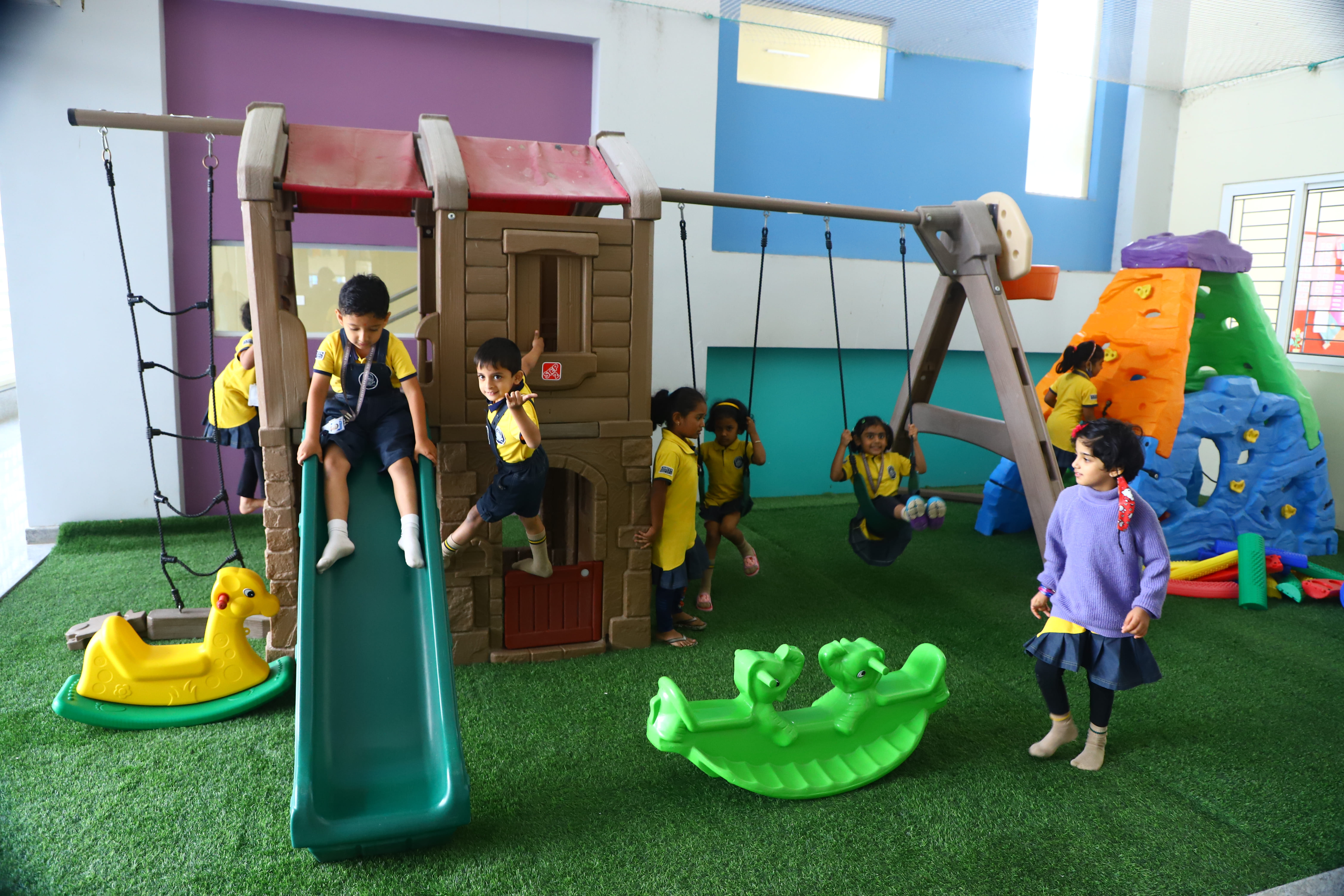
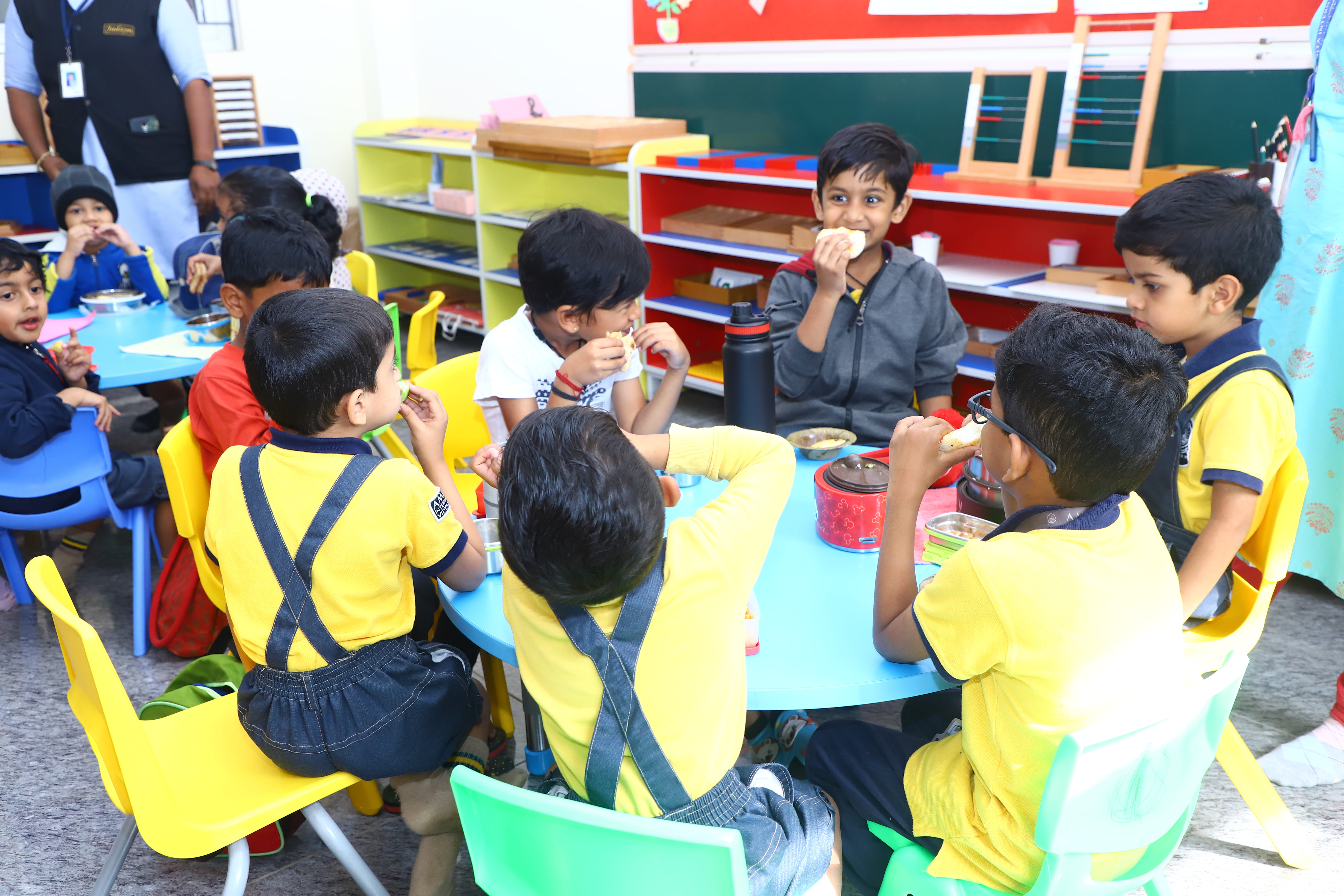

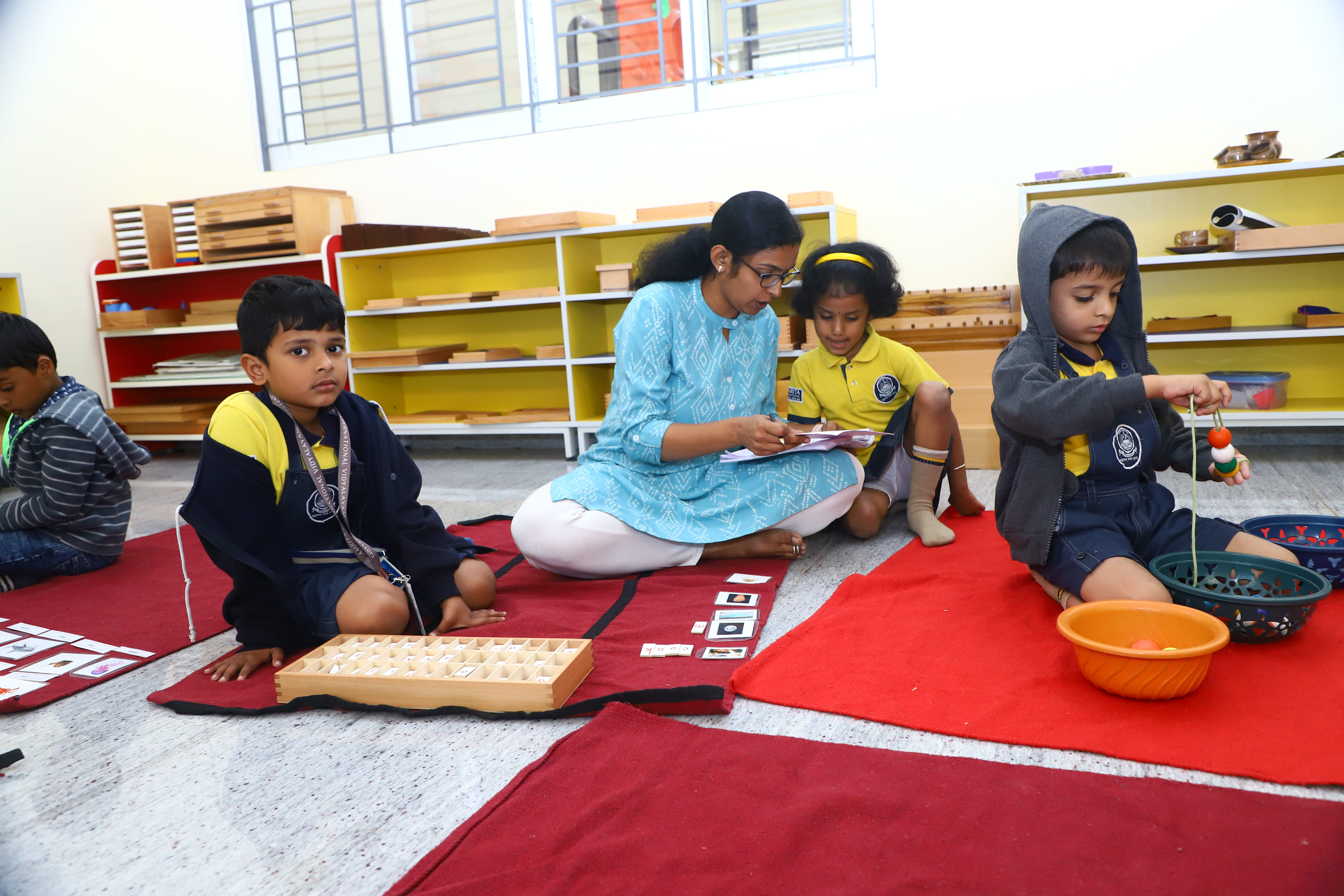
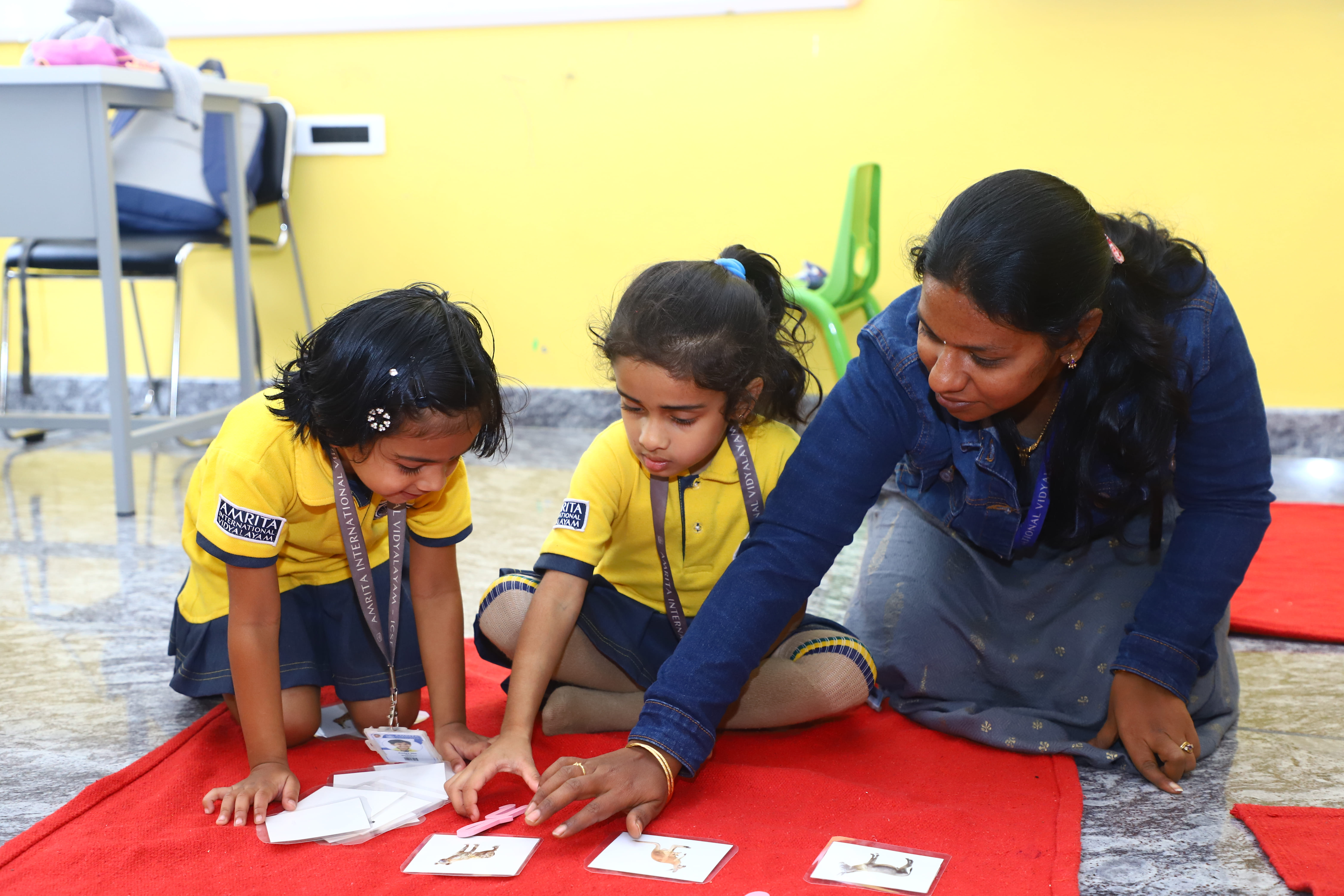
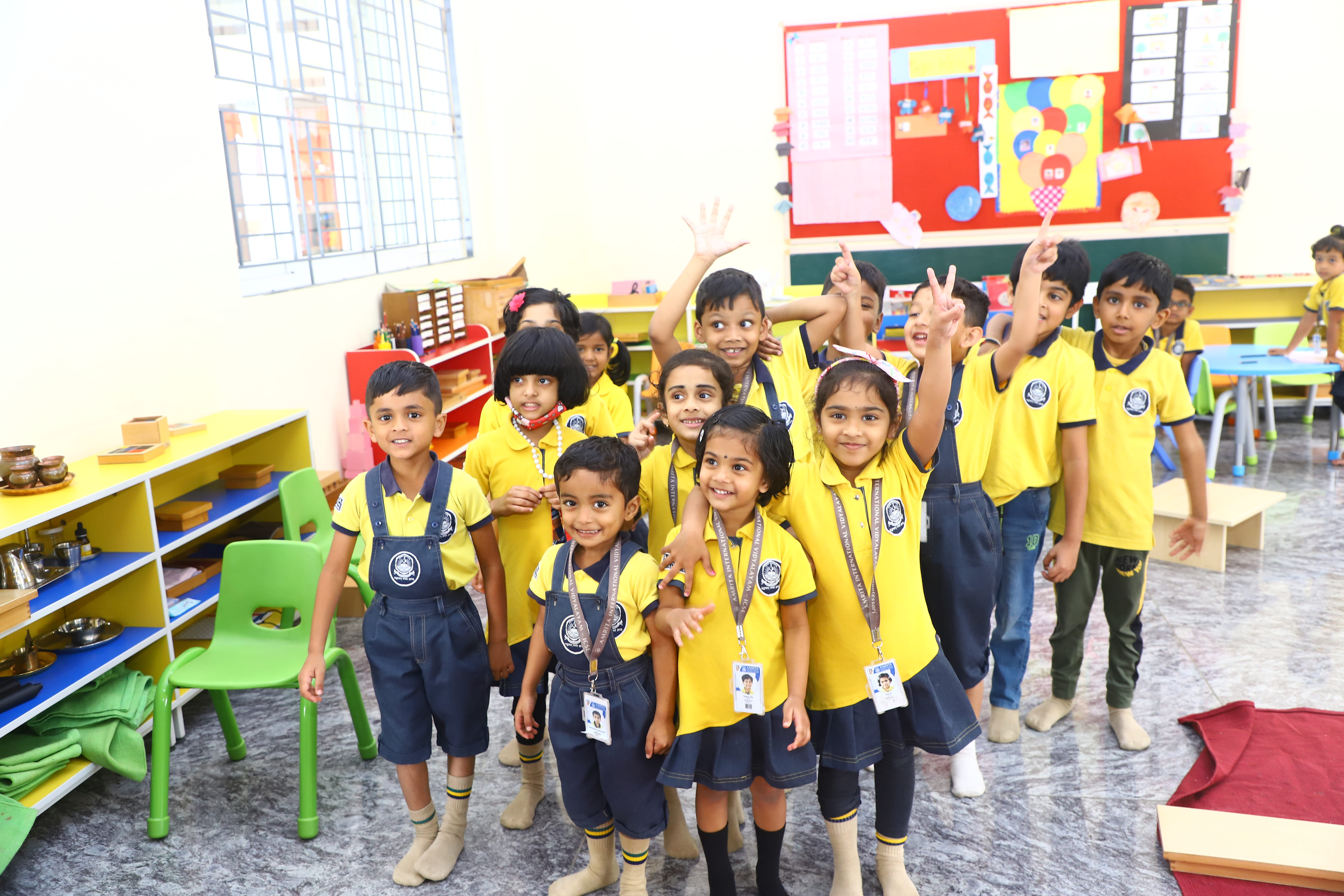
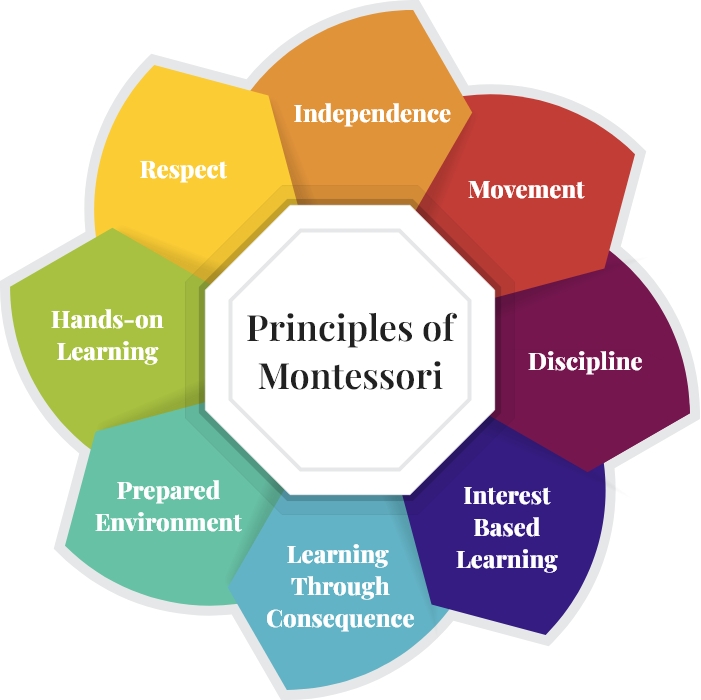
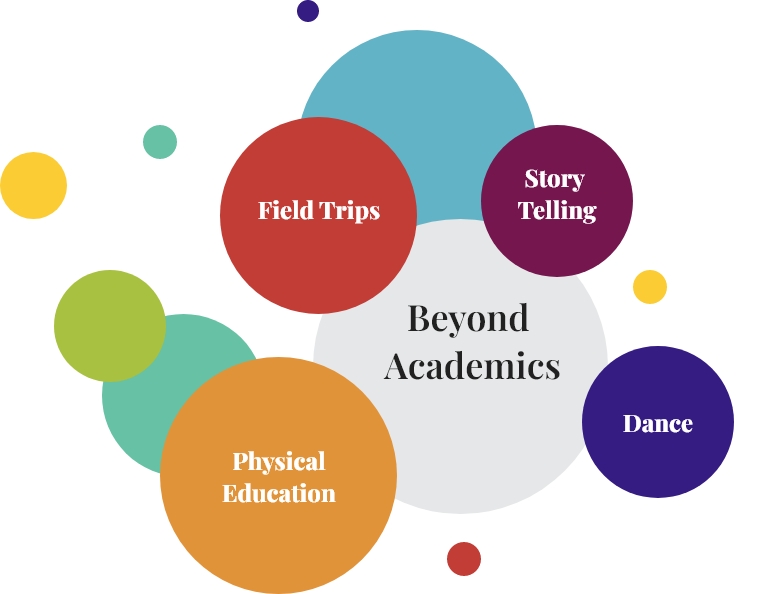
| Montessori School | Traditional School |
|---|---|
| Mixed Age Groups | Single age group |
| Older Children guide Younger ones | Not possible |
| Lessons individualized to Student needs | Group lessons |
| Goals set by Child | Common core standards |
| Child chooses their Work | Teacher assigns work |
| Environment and method encourages self-discipline | Teacher enforces discipline |
| Child sets his own learning pace | Pace forced by the group |
| Child reinforces own learning by internal feelings of success | Learning is reinforced by rewards and punishments |
| Child spots his own errors through feedback on material and self correction | Errors in child's work are highlighted by the teacher |
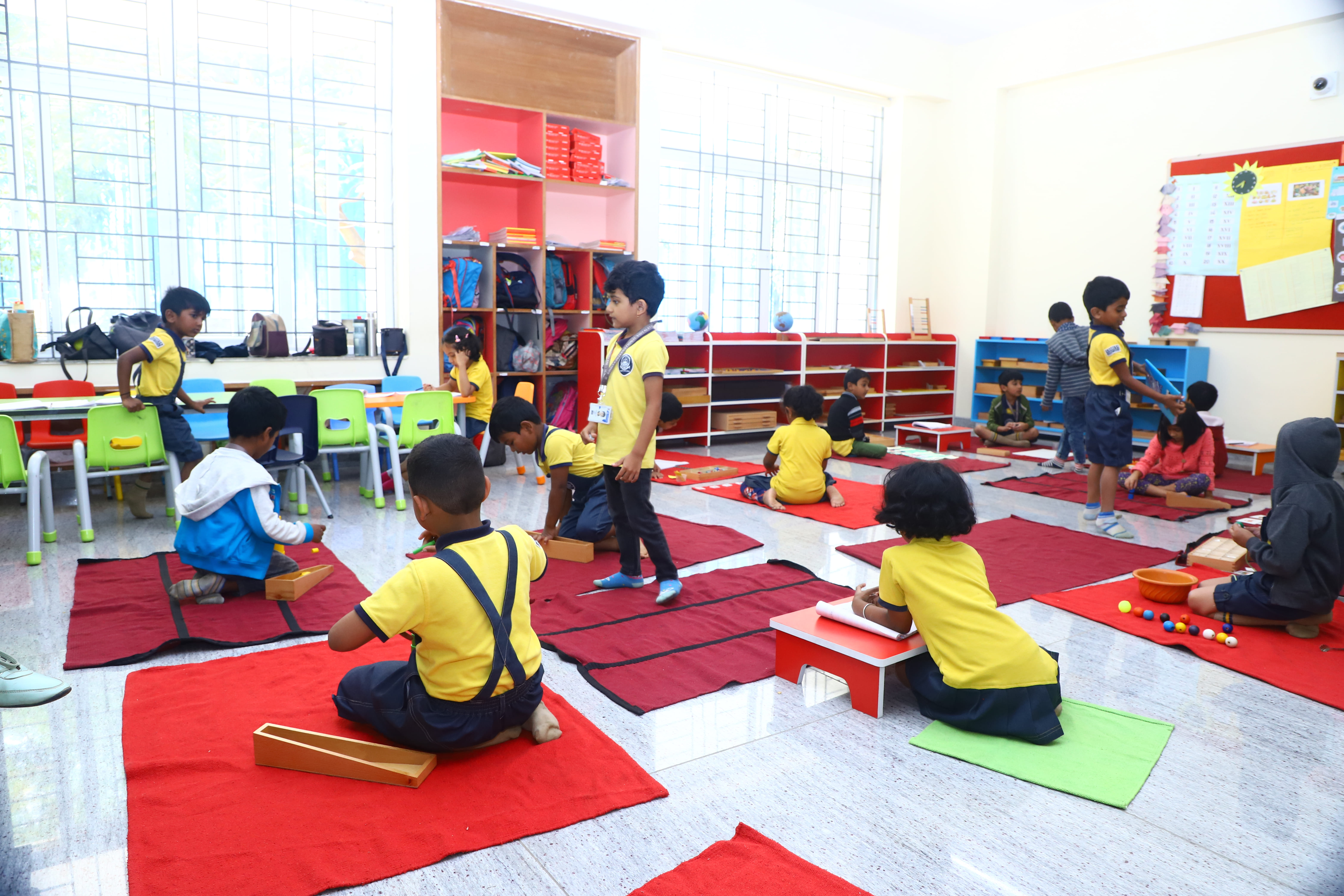
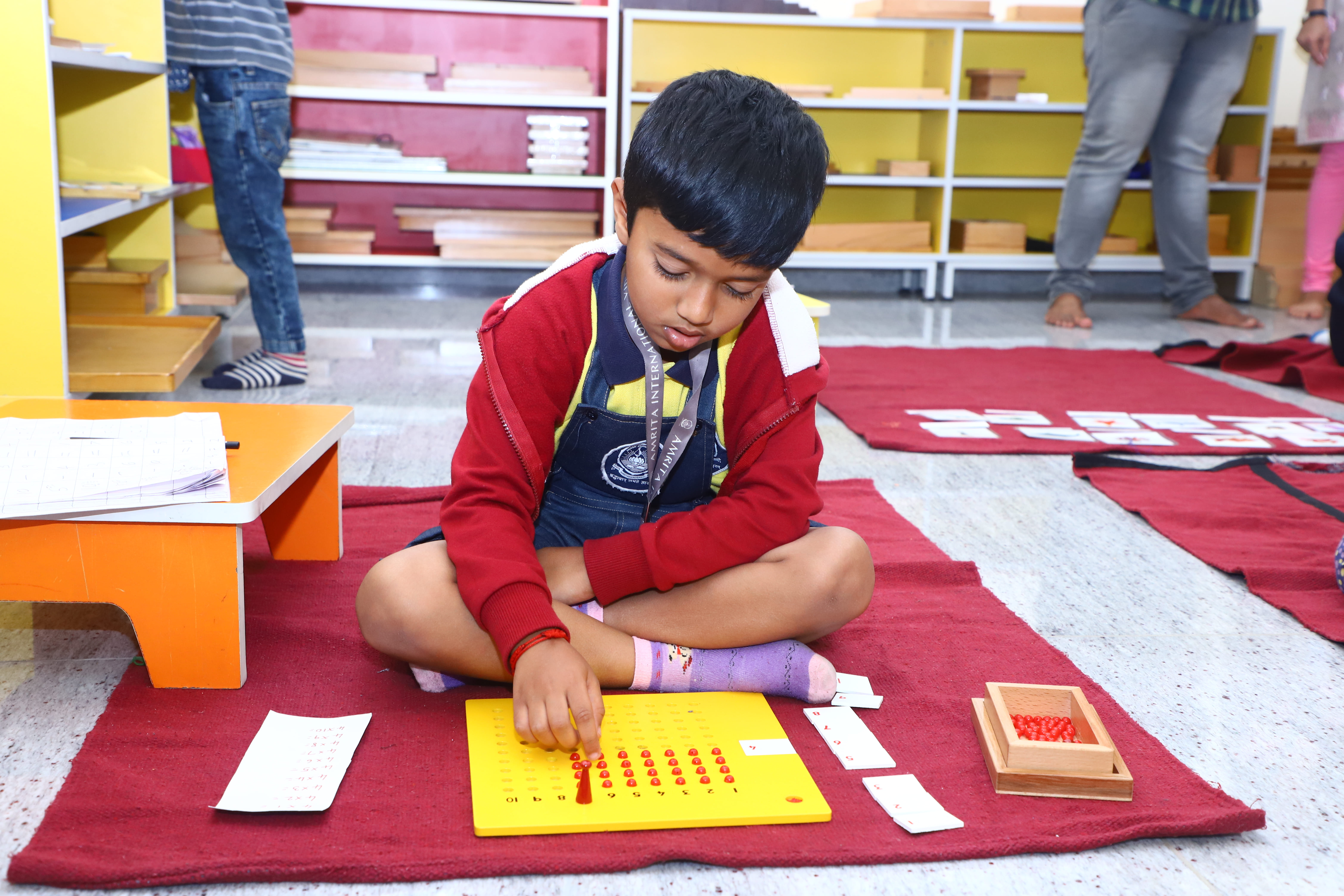
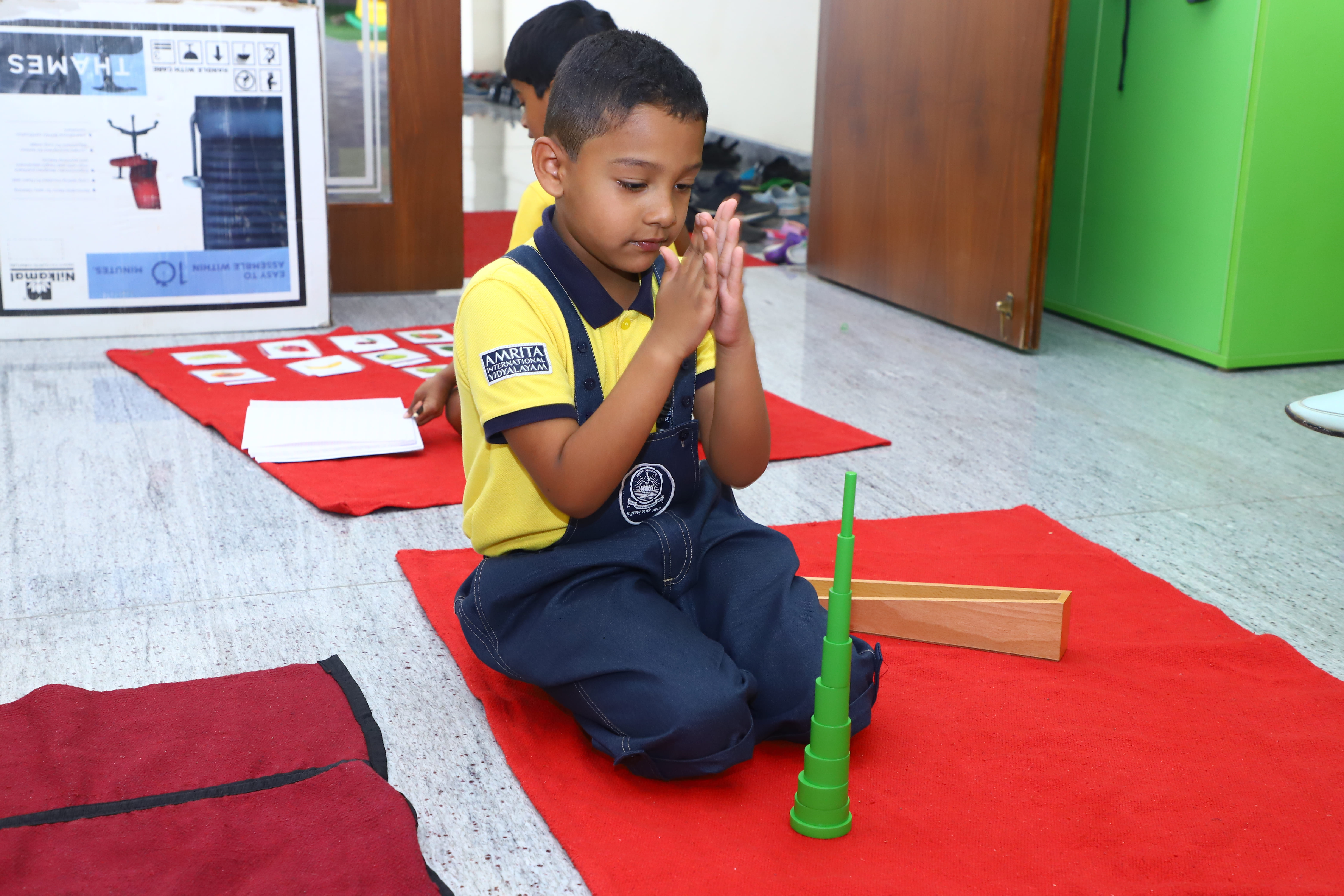
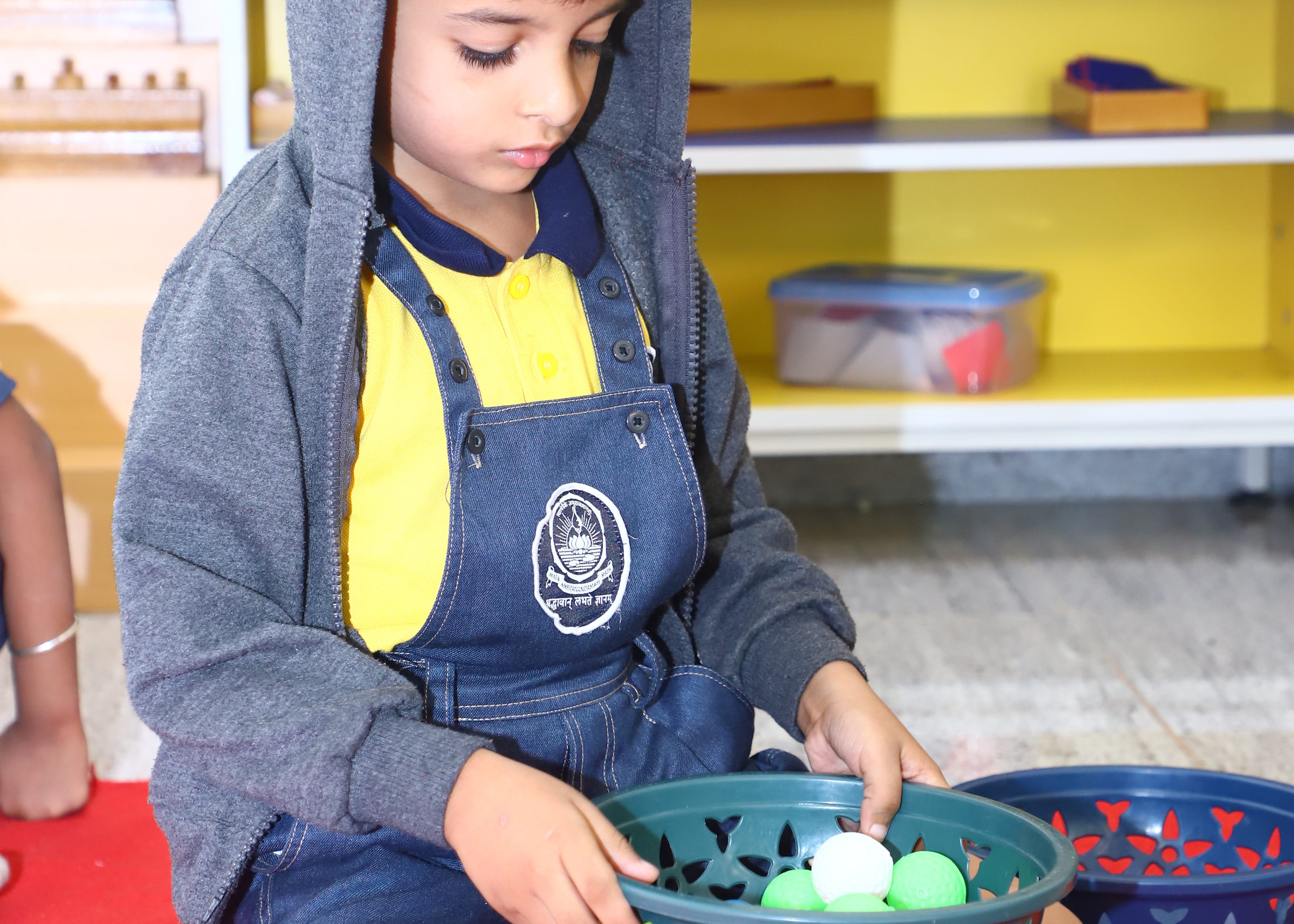
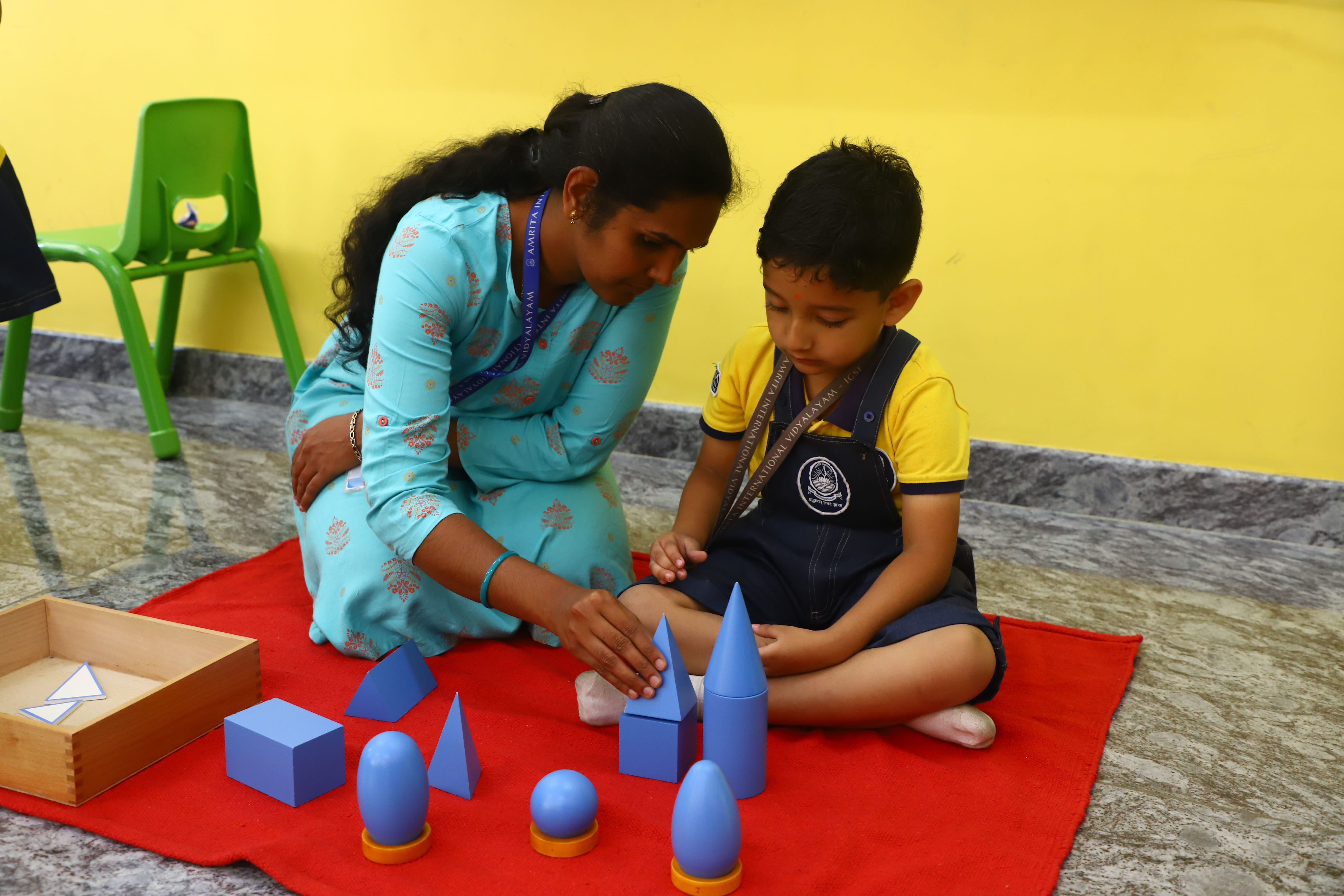
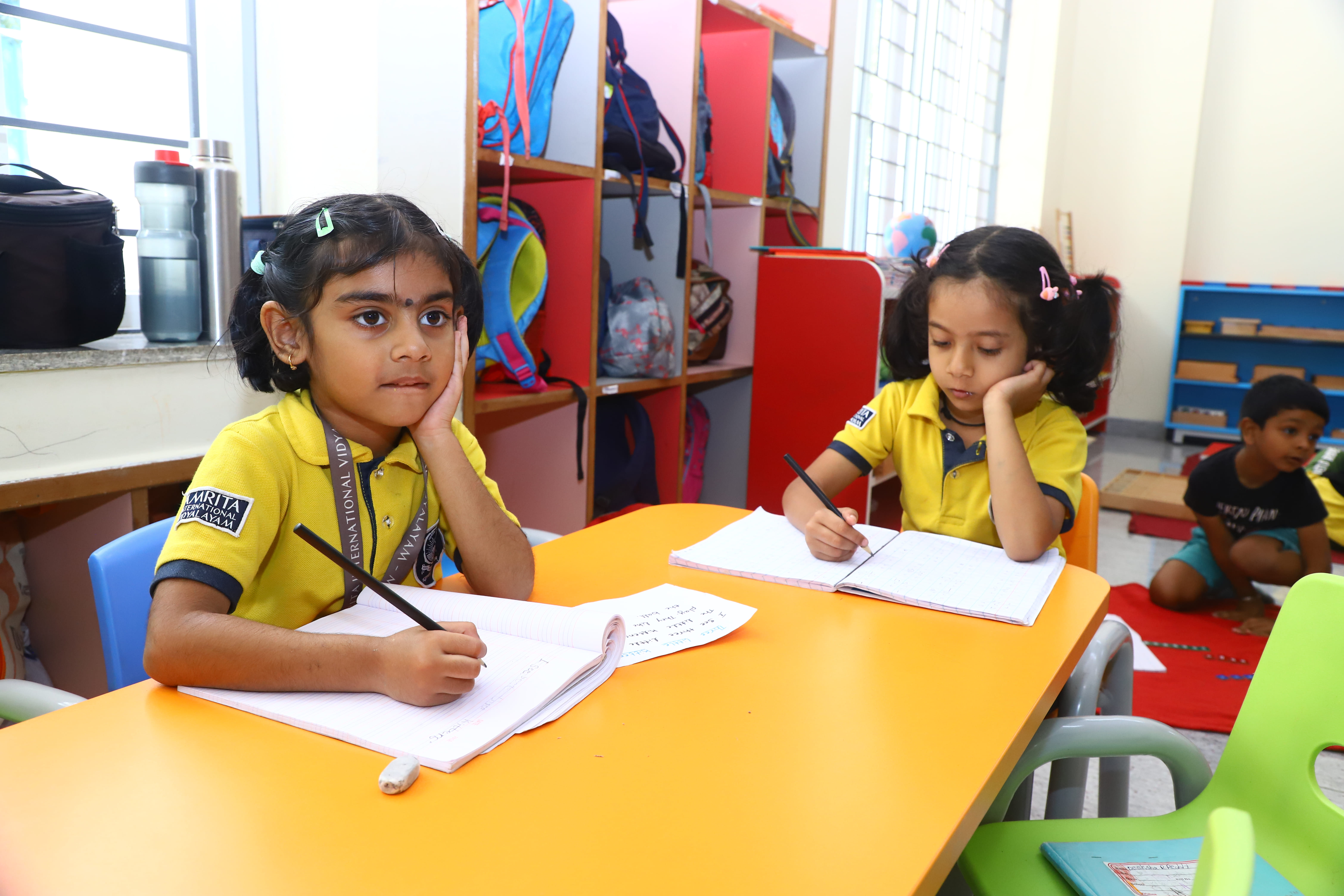

Parents and students share their experiences with AIV and the impact of our IB curriculum. Learn why our school is the preferred choice for many families.





Find out about our enrollment process and how you can become part of our vibrant learning community.
* Limited Seats Available

- Her Holiness Satguru Sri Mata Amritanandamayi
